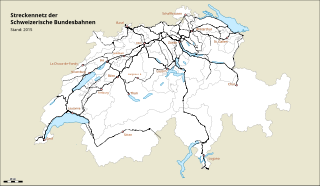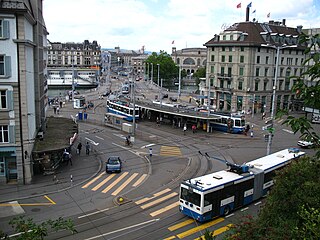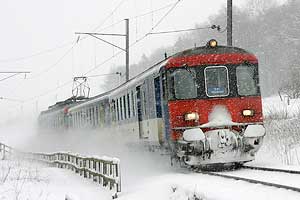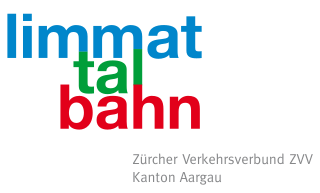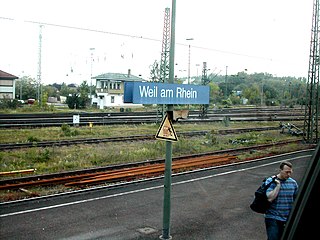The Tarifverbund Nordwestschweiz, also known by its initialisation TNW, is a Swiss public transport tariff network covering the whole of the cantons of Basel-Stadt and Basel-Landschaft, together with parts of the cantons of Aargau, Jura and Solothurn. [1]
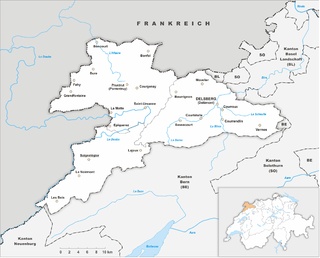
The Republic and Canton of the Jura, also known as the canton of Jura or canton Jura, is the newest of the 26 Swiss cantons, located in the northwestern part of Switzerland. The capital is Delémont. It shares borders with the canton of Basel-Landschaft, the canton of Bern, the canton of Neuchatel, the canton of Solothurn, and the French régions of Bourgogne-Franche-Comté and Grand Est.

The canton of Solothurn, also canton of Soleure is a canton of Switzerland. It is located in the northwest of Switzerland. The capital is Solothurn.
Contents
The TNW network offers various kinds of tickets, from single tickets to annual season tickets, which are valid on the buses, trams and trains of the operators that are members of the network. Tickets are only valid within the TNW area, and prices are based on zones, with 48 zones covering the whole of the TNW area. [2] [3]
One section of Baselland Transport's tram line 10 crosses through France, and this section of the route is included in the TNW network. However this does not apply to the extension of Basler Verkehrs-Betriebe's tram line 8 to Weil am Rhein in Germany. Instead, the TNW is itself a member of the triregio integrated fares network, which also covers the adjoining areas of France and Germany. [3] [4]
Baselland Transport (BLT) is a public transport operator in the Swiss city of Basel. The BLT was founded in 1974, and is owned by the canton of Basel-Land, which contains the area surrounding the inner city. It transports some 48 million passengers per year, using a fleet of 64 buses and 100 trams over a network of 165 kilometres (103 mi) of bus routes and 65 kilometres (40 mi) of tram routes.

BLT's tram line 10 is an international tramway line in Europe which is 25.6 kilometres (15.9 mi) in length. The line in the region of Basel, Switzerland, is operated by Baselland Transport (BLT).

France, officially the French Republic, is a country whose territory consists of metropolitan France in Western Europe and several overseas regions and territories. The metropolitan area of France extends from the Mediterranean Sea to the English Channel and the North Sea, and from the Rhine to the Atlantic Ocean. It is bordered by Belgium, Luxembourg and Germany to the northeast, Switzerland and Italy to the east, and Andorra and Spain to the south. The overseas territories include French Guiana in South America and several islands in the Atlantic, Pacific and Indian oceans. The country's 18 integral regions span a combined area of 643,801 square kilometres (248,573 sq mi) and a total population of 67.3 million. France, a sovereign state, is a unitary semi-presidential republic with its capital in Paris, the country's largest city and main cultural and commercial centre. Other major urban areas include Lyon, Marseille, Toulouse, Bordeaux, Lille and Nice.

